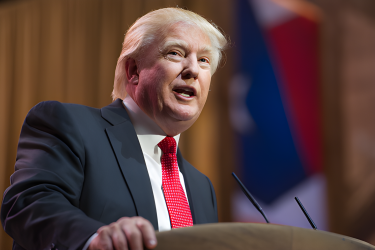Summary:
-
US President Donald Trump sees “great deal” with China
-
The US ready to announce tariffs on all remaining Chinese imports if next month talks fail
-
Antipodean currencies rally on the back of a comeback of a risk-on mode
Tuesday is bringing a healthy rebound across Asian stock markets following comments from the US President Donald Trump regarding an ongoing trade dispute with China. Trump told Fox News on Monday that the deal with the world’s second largest economy needs to be “great” because China has “drained” the US. He continued saying that the US has really helped rebuild China. While the “great deal” sounds good and could bode well for the future at least in the eyes of equity investors Trump also added that he does not think China is ready to do so even as his administration would like to make such the deal. Referring to the trade battle Donald Trump ensured that the US is going to win that one. In addition, he also alluded to the last weekend presidential elections in Brazil suggesting that a trade agreement with the South American country could happen before long. In response to these remarks Chinese equities rallied being able to pare their previous losses made also due to the reason related to the trade war. Namely, we were offered yesterday evening that the US is ready to effectively slap China with duties on all remaining Chinese imports (roughly $257 billion based on the data from the past year) if a meeting between Donald Trump and Xi Jinping (November) fails to ease the trade war. The world’s largest economy is reportedly ready to do so as early as the beginning of December. Therefore, it looks that if the meeting, scheduled on November 20 during a G20 summit in Buenos Aires, yields no progress the trade dispute could exacerbate with all consequences to the global economy and financial markets alike.

After crashing the support placed nearby 2680 points last week the SP500 (US500) has been trading below its 50-period MA. Until this line holds, the price is unlikely to experience any more notable swings to the upside. Source: xStation5
Touching on China one needs to mention that the overnight comments coming from Donald Trump helped buttress the yuan to some extent receding odds that the USDCNH will move through 7. Rambling on this topic it looks that all will depend on the November’s meeting between the two presidents and if it ends up with success in this field, the likelihood of the yuan trading beyond 7 against the US dollar will probably subside as well. But we are still 20 days away from the G20 summit in Argentina and one may suppose that markets could become more sensitive to any remarks concerning this topic. Ending the China’s thread let us notice that China Securities Regulatory Commission (CSRC) said overnight that the country will increase stock market liquidity and cut trading barriers. The CSRC announced that it will encourage share buybacks and M&A by listed companies. It will also encourage insurance companies, social security fund and wealth management products to invest in the stock market. These comments also contributed to better performance of Chinese stocks. The Shanghai Composite is trading 1.35% higher, the Hang Seng (CHNComp) is gaining 0.2% while stock markets in Japan and Australia ended the day with gains of 1.45% and 1.35% respectively.

The Aussie is going up this morning in the wake of higher appetite for riskier assets. The first technical obstacle could be found nearby 0.71 followed by 0.7150. Source: xStation5
Looking through currencies one may also discern repercussions of increased risk appetite. The Australian dollar is leading the gains rising almost 0.5% while the New Zealand dollar is climbing 0.4%. At the same time the Japanese yen is moving 0.3% lower on a daily basis despite an array of upbeat numbers from the local labour market. The jobless rate fell to 2.3% from 2.4% in September beating the median estimate assuming no change whereas the job-to-applicant ratio picked up to 1.64 from 1.63. The unemployment rate was the lowest since October 1992 while the ratio declined to the lowest since 1974. The underperformance of the JPY underlines that the currency is still driven by external factors.
In the other news:
-
Building approvals in Australia declined 14.1% YoY in September falling short of the consensus of a 9% decrease
-
French economy saw a 1.5% annualized rate of GDP growth in the third quarter, down from 1.7% in the prior three months
-
Gold prices trade 0.2% lower, the US 10Y yield moves up 2 bps, the SP500 futures rise 0.5%
This content has been created by XTB S.A. This service is provided by XTB S.A., with its registered office in Warsaw, at Prosta 67, 00-838 Warsaw, Poland, entered in the register of entrepreneurs of the National Court Register (Krajowy Rejestr Sądowy) conducted by District Court for the Capital City of Warsaw, XII Commercial Division of the National Court Register under KRS number 0000217580, REGON number 015803782 and Tax Identification Number (NIP) 527-24-43-955, with the fully paid up share capital in the amount of PLN 5.869.181,75. XTB S.A. conducts brokerage activities on the basis of the license granted by Polish Securities and Exchange Commission on 8th November 2005 No. DDM-M-4021-57-1/2005 and is supervised by Polish Supervision Authority.


